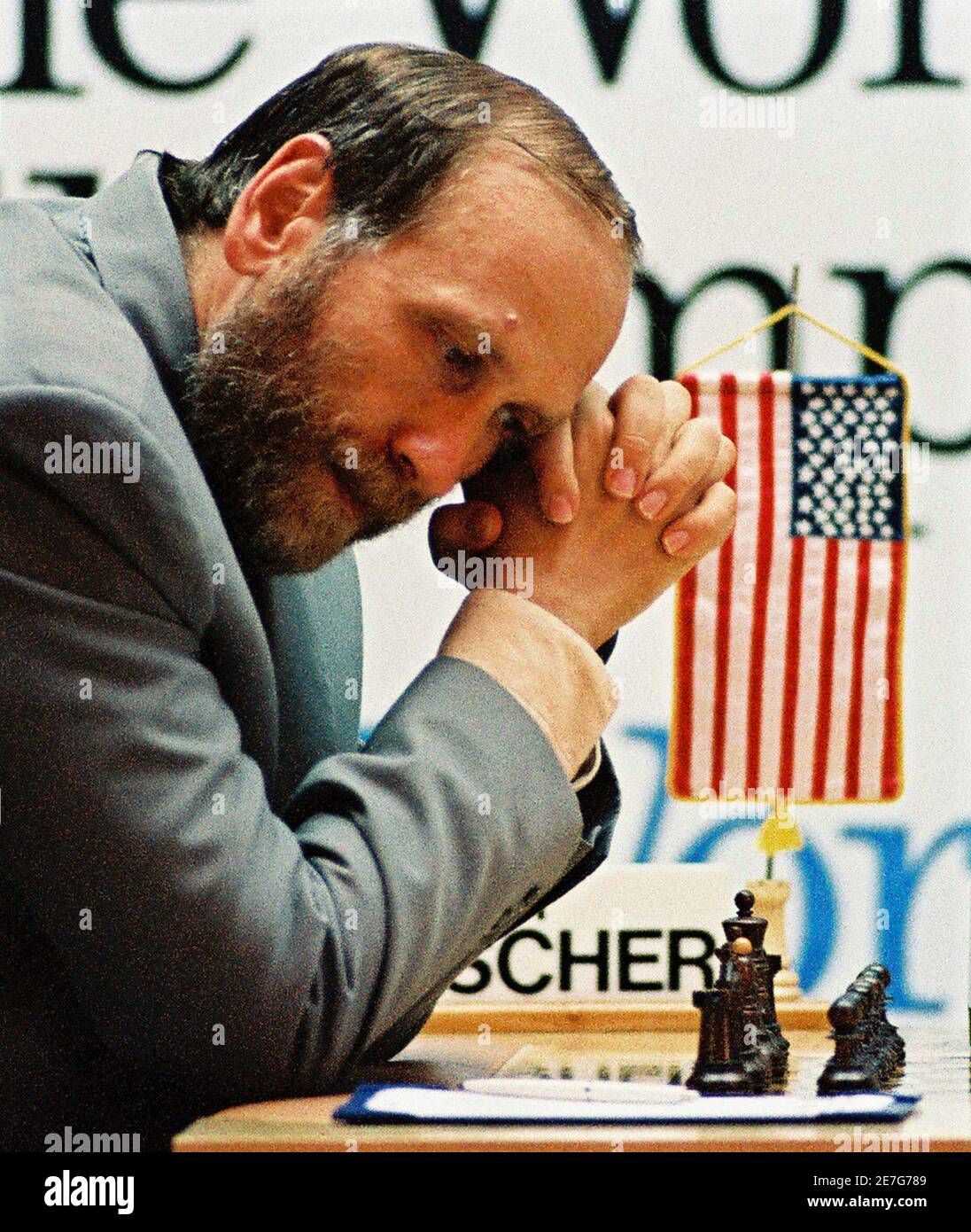
Fischer never met Nemenyi, who died in 1952, when Fischer was nine. In 1942, Regina had an affair with Paul Nemenyi, a Hungarian mathematician who worked on the Manhattan Project. When they tried to move to the United States in 1939, immigration officials would not let Hans Gerhardt into the country because he was an alleged Communist sympathizer. She was married to Hans Gerhardt Fischer, a German biophysicist, and they had a daughter, Joan. In the 1930s, she lived in Germany and then Moscow. Fischer’s mother, Regina Wender, was born in Switzerland in 1913 and raised in the United States. Through the Freedom of Information Act, The Philadelphia Inquirer reviewed the government’s file on Fischer’s mother and discovered that his biological father was Jewish, too. Because Fischer’s mother had studied medicine in Russia and was a political radical, the FBI had her under observation.

ħ: Until recently there were questions about the identity of Fischer’s father. Problems are the poetry of chess, and its poetry, as all poetry, is subject to changing trends with various conflicts between old and new schools”. The composing of these ivory-and-ebony riddles is a comparatively rare gift and an extravagantly sterile occupation but then all art is inutile, and divinely so, if compared to a number of more popular human endeavors. Chess problems demand from the composer the same virtues that characterize all worthwhile art: originality, invention, conciseness, harmony, complexity, and splendid insincerity. After discussing the poems in the introduction, Nabokov wrote, “Finally, there is the chess. The book begins with fifty-three poems and concludes with eighteen chess problems, such as a mate-in-two-“a self-interference freak not for the conservative solver”-composed in Montreux in 1968. Vladimir Nabokov’s most obscure chess book, Poems and Problems, was published in 1970. Islamic authorities banned figurine chess pieces because of Mohammed’s prohibition on humanlike images.Ħ: The artistic element of chess, as opposed to the sporting aspect, is emphasized in the composition of chess problems (constructed positions in which, say, White is asked to force a mate in two moves), a pursuit that attracts only a small subset of chess players. They feared it was associated with gambling. ĥ: Religious leaders have had other reasons, too, for censoring chess. In 1848, a sponsor offered to fund a twenty-five-game match on the condition that “whatever may be the result, we hear nothing of indigestion, headache, indisposition, want of preparation, rest, or any other excuse, however ingenious, as palliative of defeat”. If he should win the next game, you will probably hear no more of this”. In 1842, The Chess Player’s Chronicle advised, “Do not be alarmed about the state of your adversary’s health, when, after losing two or three games, he complains of having a bad headache, or of feeling very unwell.


In these footnotes, however, I allow myself the guilty liberty of sharing legendary yarns-flagging them as such, of course.ģ: In another mounting-the-table story, which is too amusing to ignore even if its truth is questionable, the great Aron Nimzowitsch (1886–1935) climbed on the chessboard, dropped to his knees, and shouted to the heavens, “Oh Lord, why did I have to lose to this idiot?”Ĥ: The illness alibi is old.

The historical anecdotes that I repeat in the main text were gleaned mostly from contemporary chess periodicals and newspaper columns, not secondary sources. With few exceptions, which are duly telegraphed by adjectives like fictional, apocryphal, and reported, the stories were witnessed by me or by those whom I interviewed. In the main text of King’s Gambit, I tell my share of droll, irreverent, even prurient stories. Allegedly is the operative word because chess players thrive on gossipy lore about the giants of the game, and this particular anecdote cannot be substantiated. I want to achieve a small degree of immortality by the ingenious manner in which I coordinate my knights.ġ: I now prefer the definition in The Great Soviet Encyclopedia: “a sport masquerading as an art.”Ģ: Perhaps the young retiree had been influenced by the familiar story of how world champion Alexander Alekhine (1892–1946) allegedly destroyed his hotel room furniture after a devastating loss. I want to launch daring, unexpected attacks the way Jennifer and Pascal do. I want to work magic with the chess pieces the way Morphy and Fischer did. But for the unadulterated pleasure of peering further into the abyss of chess and glimpsing the game’s deeper beauty. Not for the financial rewards, because they are few unless you’re a Karpov or a Kasparov. In another life, I want to be a grandmaster.


 0 kommentar(er)
0 kommentar(er)
